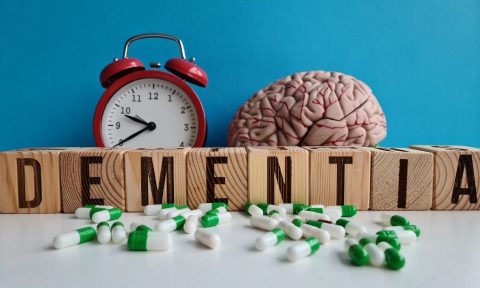Medically Reviewed by:
Dr Sarah has worked as a medical advisor with a total 10 years of experience in the pharma and clinical setting with wide exposure in clinical research and medical affairs.
Imagine this: you’re sitting in a cozy armchair, sipping on a warm cup of tea, enjoying the tranquility of your golden years. But suddenly, a thunderstorm disrupts your peaceful afternoon, leaving chaos and uncertainty in its wake. This storm is not a literal one but rather a stroke, a condition that affects millions of people around the world, including elderly women.
Dear reader, today we embark on an important journey to unravel the unique risk factors that elderly women face when it comes to strokes. We understand that knowledge is power and by understanding these risk factors, we can take proactive steps towards preventing strokes and ensuring healthy aging for ourselves and our loved ones.
| Did you know? Strokes are more common in women. That’s right! Women have a higher lifetime risk of experiencing a stroke compared to men. This could be due to various factors such as hormonal changes, pregnancy, and menopause. But worry not; we’re here to demystify these risk factors and equip you with the information you need to navigate this complex landscape. |
In our society, strokes are often seen as something that primarily affects men. However, did you know that stroke risk factors can be different for elderly women? Yes, my dear friend, within the intricate web of neurology, there exists a fascinating world where gender plays a significant role in determining one’s vulnerability to strokes. Today, we will delve into this realm to shed light on the unique risk factors faced by elderly women and explore ways to prevent strokes from casting a shadow on their lives.
In this blog post, we will explore the role of stroke risk factors unique to elderly women. From understanding the impact of hormones on stroke risk to exploring lifestyle modifications that can reduce the chances of stroke occurrence, we will delve into every aspect that can empower you to take charge of your health.
So grab your virtual umbrella and join us as we navigate stormy waters toward a safer harbor. Together, let’s dive into the world of stroke risk factors unique to elderly women and unlock the keys to healthy aging.
The role of stroke risk factors unique to elderly women
As we age, our bodies go through various changes, and unfortunately, these changes can increase our risk of certain health conditions. One such condition that elderly women need to be aware of is stroke. Stroke occurs when the blood supply to the brain is disrupted, leading to damage or death of brain cells. While stroke can affect anyone, certain risk factors are unique to elderly women. In this section, we will explore these risk factors and discuss some strategies for stroke prevention in women.
1. Hormonal Changes:
Hormonal changes that occur during menopause can have an impact on a woman’s risk of stroke. Estrogen, a hormone that has protective effects on the cardiovascular system, decreases significantly during menopause. This decline in estrogen levels can lead to an increase in cholesterol levels and higher blood pressure, both of which are risk factors for stroke. It is important for women to speak with their healthcare provider about hormone replacement therapy (HRT) options and other strategies to manage hormonal changes during this stage of life.
2. Atrial Fibrillation:
Atrial fibrillation is an irregular heartbeat that commonly affects older adults. This condition increases the risk of blood clots forming in the heart, which can then travel to the brain and cause a stroke. Women have a higher incidence of atrial fibrillation compared to men, making it an important risk factor for strokes in senior women. If you have been diagnosed with atrial fibrillation, your healthcare provider may prescribe medications such as blood thinners to reduce the risk of clot formation.
3. High Blood Pressure:
High blood pressure, also known as hypertension, is a leading cause of stroke in both men and women. However, elderly women are more likely to develop high blood pressure than their male counterparts. It is crucial for women to monitor their blood pressure regularly and take steps to keep it within a healthy range. This can include lifestyle modifications such as adopting a balanced diet, engaging in regular physical activity, managing stress, and taking prescribed medications as directed.
4. Diabetes:
Diabetes is a condition characterized by high blood sugar levels. It can increase the risk of stroke by damaging blood vessels and affecting blood flow. Elderly women who have diabetes need to be especially vigilant in managing their blood sugar levels through medication, a healthy diet, regular exercise, and routine check-ups with their healthcare provider.
5. Lifestyle Factors:
While some stroke risk factors are beyond our control, there are certain lifestyle choices that can significantly reduce the risk of strokes in elderly women. For example, maintaining a healthy weight, not smoking, limiting alcohol consumption, and eating a nutritious diet can all contribute to overall cardiovascular health and decrease the likelihood of stroke.
Conclusion:
In conclusion, understanding the unique risk factors that contribute to strokes in elderly women is crucial for their overall well-being and quality of life. By being aware of these factors, we can take proactive steps to prevent stroke and maintain a healthy lifestyle.
It’s important to remember that age, genetics, and hormonal changes can increase the risk of stroke in women. However, by making small but meaningful changes in our daily routine, we can significantly reduce this risk. Regular exercise, maintaining a balanced diet, managing stress levels, and staying hydrated are all simple yet effective ways to keep our bodies and minds healthy.
If you or a loved one have concerns about your stroke risk, it may be beneficial to consider taking some self-diagnostic tests available. These tests can help identify any potential vulnerabilities or warning signs that require further attention from healthcare professionals. Remember, early detection and intervention are key in preventing strokes and ensuring optimal neurological health.
Firstly, it is crucial to address any underlying health conditions that increase the risk of stroke. Regular check-ups with your healthcare provider can help identify and manage these conditions, such as high blood pressure, diabetes, and heart disease. Additionally, maintaining a healthy lifestyle with regular exercise, a balanced diet, and avoiding tobacco and excessive alcohol consumption can greatly reduce the risk.
Furthermore, being aware of the symptoms of stroke is essential. Remembering the acronym FAST (Face drooping, Arm weakness, Speech difficulty, Time to call emergency services) can help us recognize the signs and seek immediate medical attention. Acting quickly in these situations can make a substantial difference in minimizing potential damage.
Lastly, engaging in activities that promote brain health can also contribute to stroke prevention. Keeping our minds active through reading, puzzles, or learning new skills can help maintain cognitive function and reduce the risk of strokes associated with dementia.
We hope that this blog has provided valuable insights into the role of stroke risk factors unique to elderly women. By implementing these strategies into your daily life, you can greatly reduce the likelihood of experiencing a stroke.
If you would like to learn more about stroke prevention or have any questions regarding this topic, please visit our website at liveivory.com. Our team is dedicated to providing you with the support and information you need to make informed decisions about your health.
Remember, you are not alone on this journey. Together, we can prioritise our well-being and empower ourselves with knowledge to lead fulfilling lives. So let’s take charge of our health and embrace a future free from the burden of strokes.
Discover how well your brain is ageing and improve memory, focus, and attention. Take control of your cognitive age today! Stay strong, stay informed, and take action – because you deserve nothing less.




